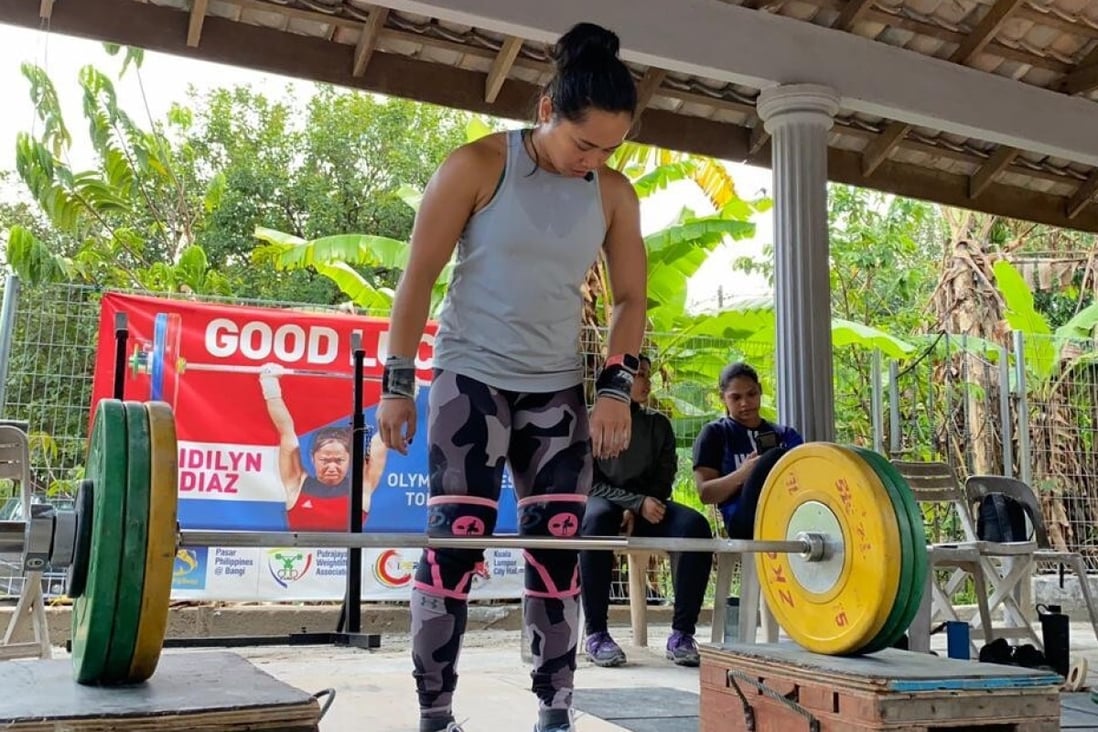
Follow our live coverage of day 10 of the Tokyo Olympics here
Hidilyn Diaz sat down for a meal with her kampong family in rural Malaysia. Before eating, she said a little prayer of thanks. The children looked at each other with surprise, and said “Bismillah” (in the name of God) – the Muslim equivalent.
Their father – Ahmad Janius Abdullah – was moved. He said Diaz, a devout Catholic, has been more than a guest in their house over the past year. She has also been an inspiration and a role model for his family and millions of Filipinos.
The 30-year-old Diaz made history on Monday when she won the Tokyo 2020 Games women’s 55kg weightlifting competition, becoming the first Filipino to capture an Olympic gold medal. The Zamboanga City native had trained in a house provided by Janius in the sleepy town of Jasin in Melaka, around 150km south of Kuala Lumpur.
How Hidilyn Diaz went from Duterte ‘plotter’ to Philippines’ Olympic champion
During her almost year-long stay in the house, Diaz trained on a platform in the backyard that Janius prepared especially for her. She formed bonds with his family and younger children, dined on kampong food, fed fish at a nearby pond and encountered venomous snakes – a typical village existence.
“She was an example to our kids over here,” Janius, a weightlifting enthusiast who owns a gym in Kuala Lumpur, told the Post. “My kids learned from her. They saw her make a prayer before eating and even though we are brought up to perform this small ritual, we tend to forget. So my children remembered to do that because of her and that made me very happy.
“We are simple people and we saw that Hidilyn needed a place to train so we offered her the house. And I’m very happy she accepted and also that she won the gold medal at the Olympics. She is an inspiration to many people here and in the Philippines.”
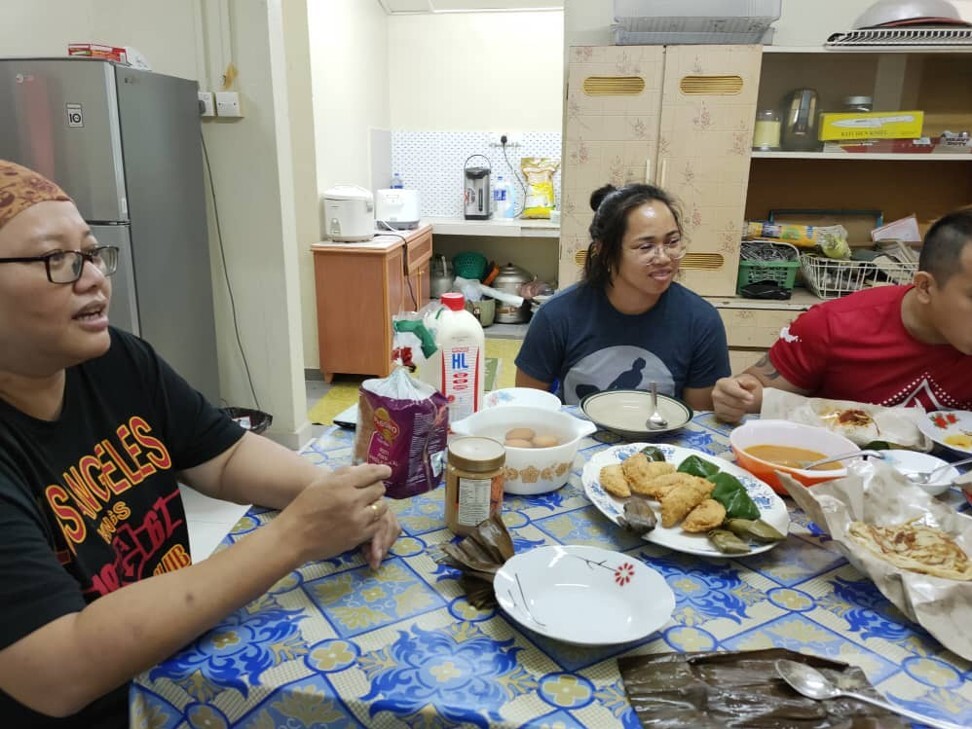
Diaz, who won silver in the 53kg division at the 2016 Rio Olympics, decided to train in Malaysia early in 2020 because of the lack of facilities in the Philippines and the need to escape the attention of the local media.
She initially used facilities provided by the Malaysia Sports Institute but was forced to halt training after the government imposed a countrywide lockdown because of the pandemic. Janius helped her find a new gym in Kuala Lumpur but it proved unreliable given varying Covid-19 rules on whether facilities could remain open.
Janius finally suggested Diaz and her team of coaches and her nutritionist stay at his father-in-law’s house in Jasin, which at the time was unoccupied because the family was living in Bangi – a commuter town about 50km outside Kuala Lumpur.
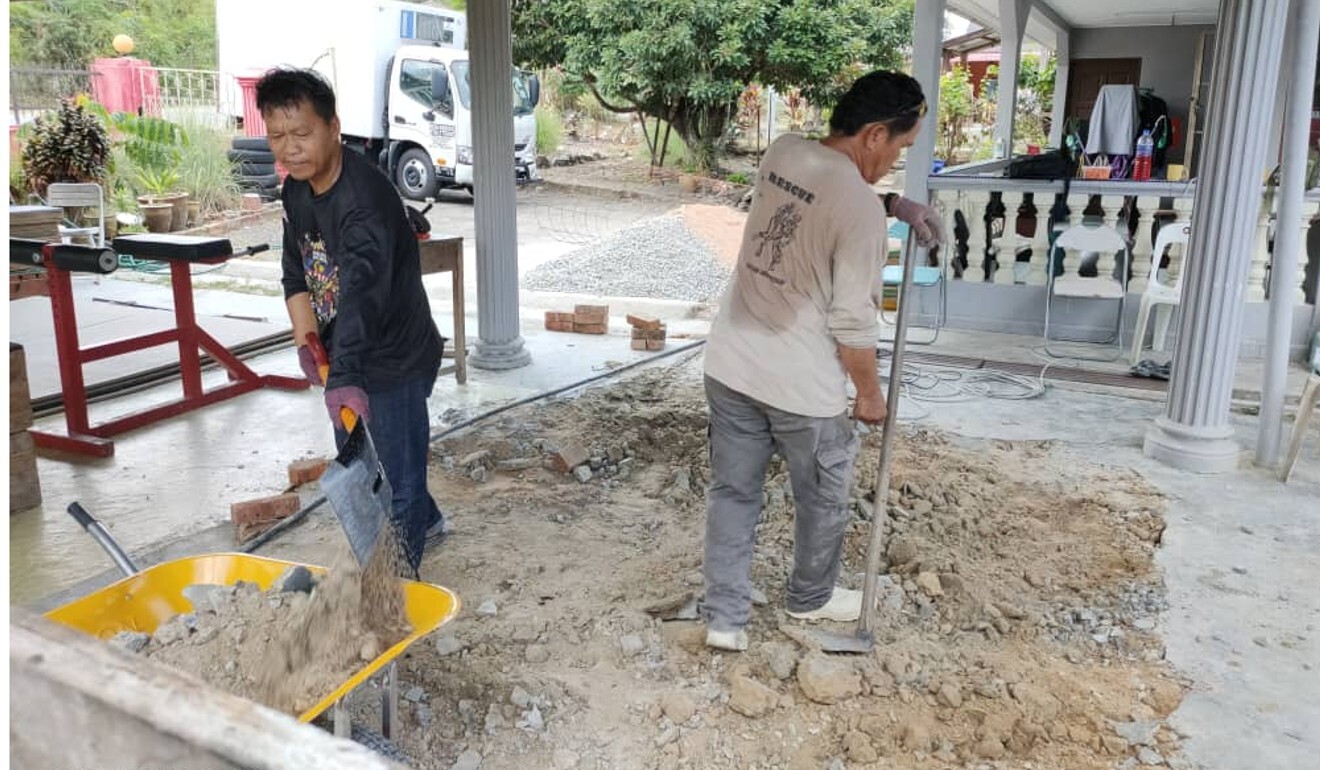
“We are very grateful to Malaysia for helping us during a difficult time for us when we did not know where to go,” Diaz told the Post. “They gave us a long-term visa, we had the house there and even though we are not Malaysians, they treated us like we belonged.
“We were a family and I’m grateful to Mr Janius. I was under a lot of pressure before the Olympics but I just tried to stay calm and manage the pressure by enjoying the moments and being with the kids.”
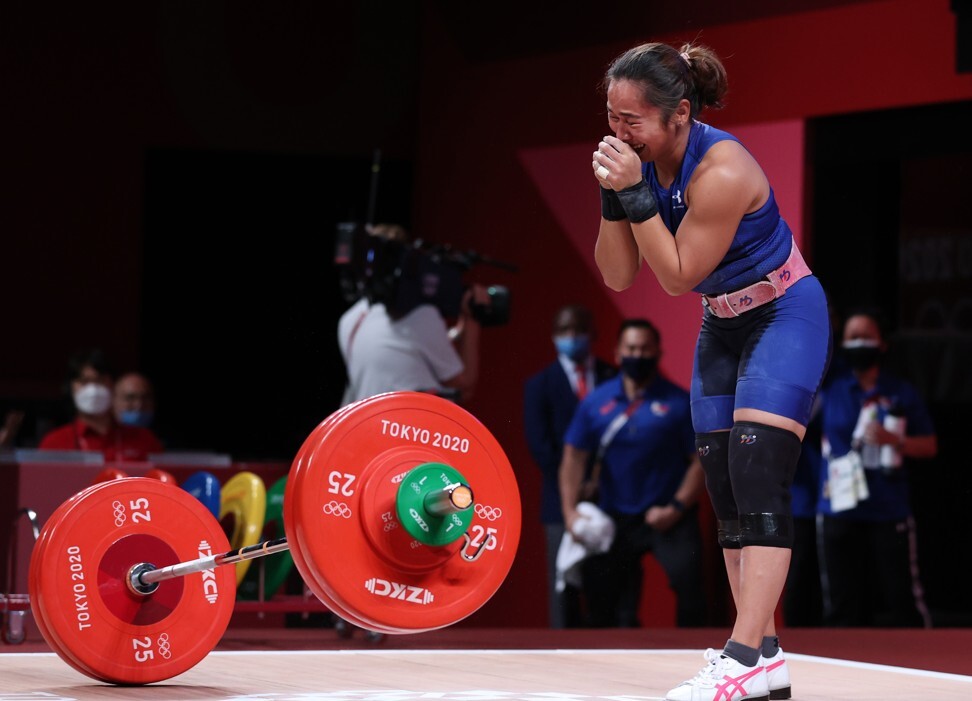
Janius, who owns a small cattle farm in Melaka, lives with his wife Rafidah Muhammad, children Fadhil (20), Hakimi (14) and Aina Amira (eight), as well as his wife’s parents.
The whole family watched Diaz’s gold medal feat live on television and were thrilled to see her on the top of the podium after a year of hardship and uncertainty.
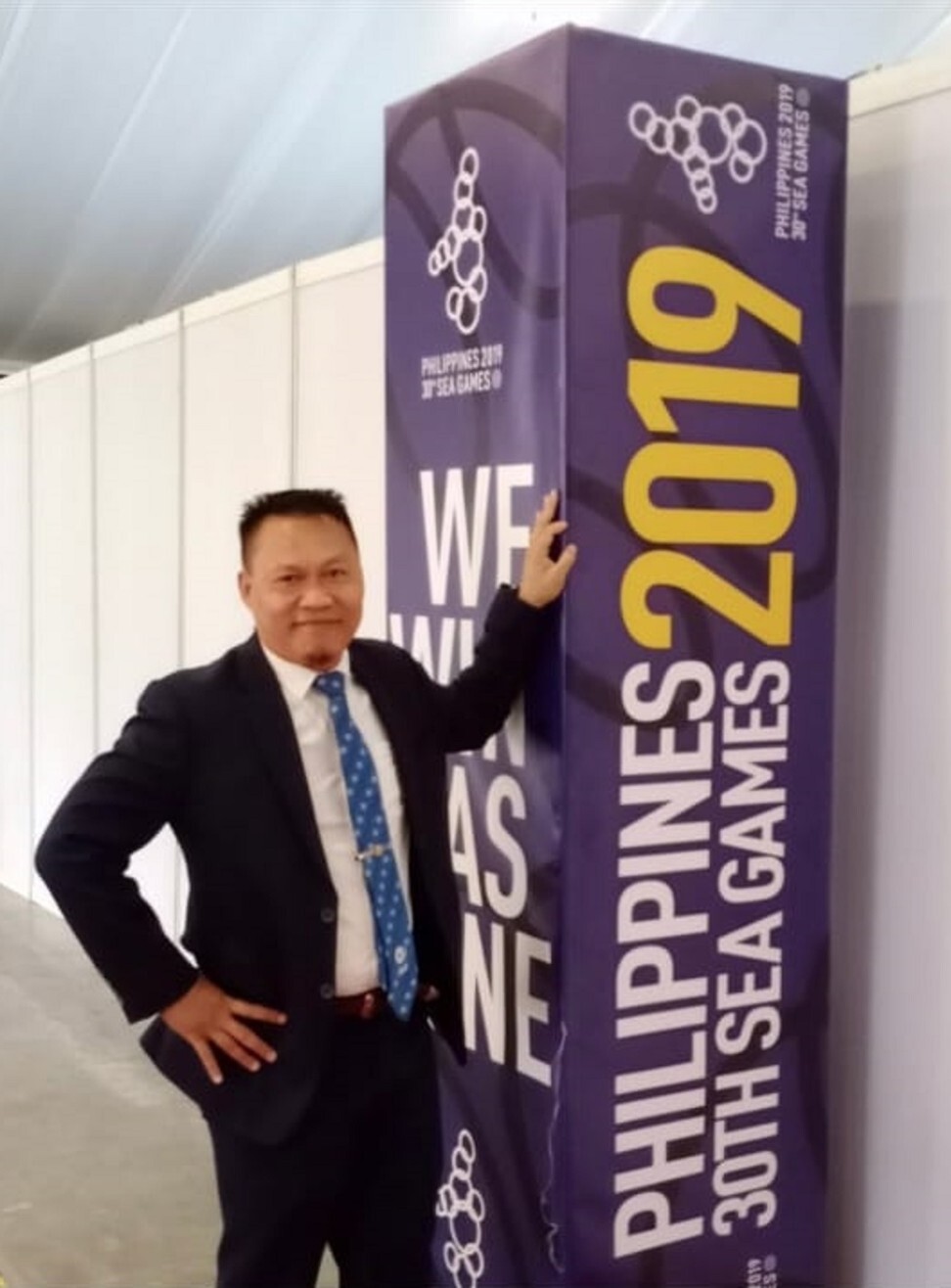
“We are very happy because we stayed here together with her and saw her struggles to train without modern equipment and facilities,” said Janius. “We are happy that we Malaysians can help athletes from other countries fulfil their dreams and win at Olympic level. I used to encourage her and tell her to stay strong and focus on the Olympics.”
Village life also allowed Diaz to separate herself from the “real” world, in which a country of 111 million people was piling their hopes on her 1.58-metre frame. Though able to lift almost double her body weight, the pressure of expectation bears down heavily on her shoulders. The kampong and its surrounding helped her to focus but the pressure remained intense.
“The pressure is so high but it was a good thing that I had people behind me, praying for me to perform well and also guiding me,” said Diaz. “I had a sports psychologist and almost every day we would talk online. I also performed yoga.
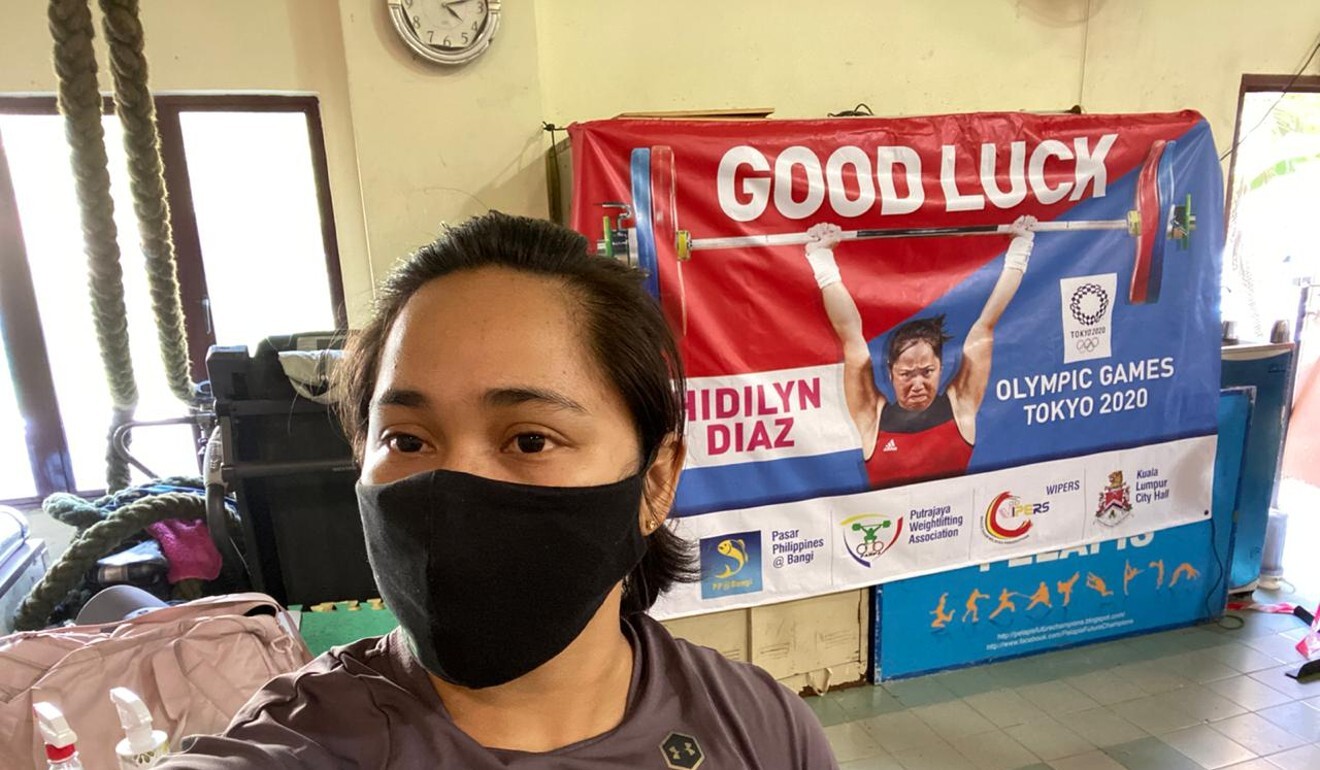
“But it was something I expected because I’ve been in the sport for 19 years and I’ve been in the Olympics before so I knew what to expect.”
Equipment-wise, Janius provided everything she needed from his gym in Kuala Lumpur. In terms of people, Diaz was also fulfilled. Team HD – coach and nutritionist Jeaneth Aro, head coach Gao Kaiwen and strength and conditioning coach Julius Naranlo, who is also her boyfriend – was with her for the entire Malaysia stint, while psychologist Karen Trinidad was only a Zoom call away.
Trinidad’s role became more significant closer to the Olympics as doubts started to invade Diaz’s mind and she feared letting people down.
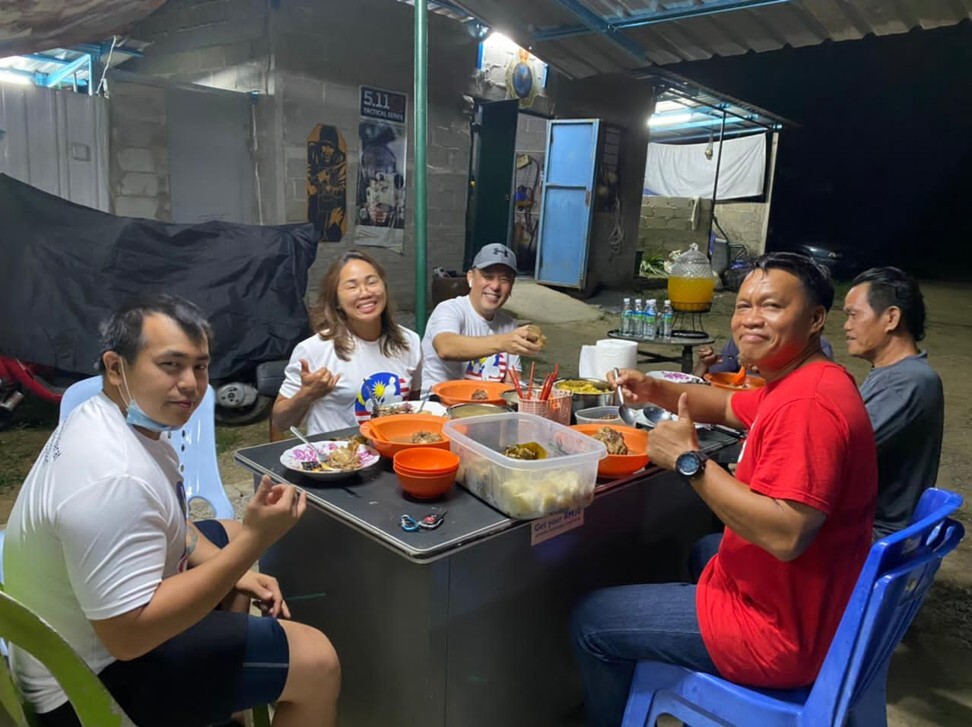
“It’s the self-belief that was the hard thing,” said Diaz. “It’s hard for me to believe in myself but days before the competition she showed me a book about self belief. She said ‘you have the experience, you are well trained and you have people behind you who believe in you. Why don’t you believe in yourself?’”
That was the mindset Diaz took to her final clean and jerk lift that would decide the gold. Few can forget her tearful reaction on the platform, taking a few steps back, crouching for a moment before her team joined her for the celebrations.
“Before the lift, my coaches and Julius said to me, ‘you are prepared’. I just went to the platform, and did it in one motion,” she said. “There was no fear, no doubt, I just did it. I just said to myself what I needed to do at that time.”
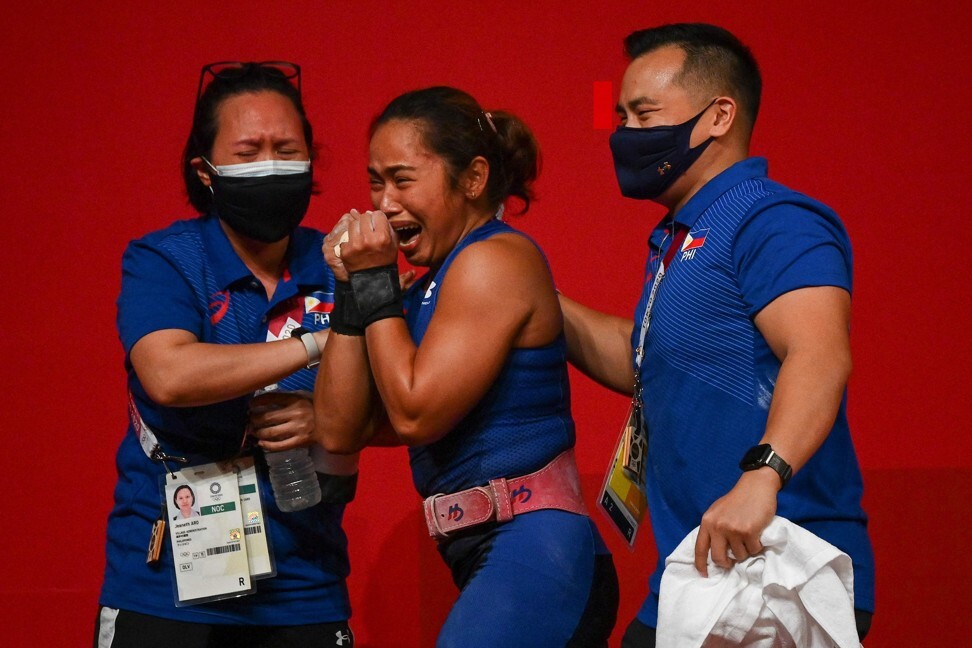
Also a key part of Diaz’s success is the moral support provided by Ruth Yu-Owen, co-founder of Connected Women – a community organisation in the Philippines helping to empower women in the digital age by creating opportunities in entrepreneurship, freelancing and remote work.
Owen helped her emerge stronger from the many low points – including a controversy involving Philippine president Rodrigo Duterte – she suffered on her journey to gold.
“She is like a mother to me, she really helped me when everyone was against me and I am thankful to have her in my life,” said Diaz. “She inspires a lot of people and is always giving back to the community.”
Yu-Owen would often welcome Diaz to her home in Manila, saying the athlete was down-to-earth and like the girl next door.
“She is like a daughter. Her mother is in Zamboanga and when she is in Manila we would visit me regularly. She genuinely cares about others, she’s a good person with a good heart, and is consistently like that,” said Yu-Owen.
“Hidi doesn’t have a mean bone in her body but she is very strong, not just physically but emotionally.”







